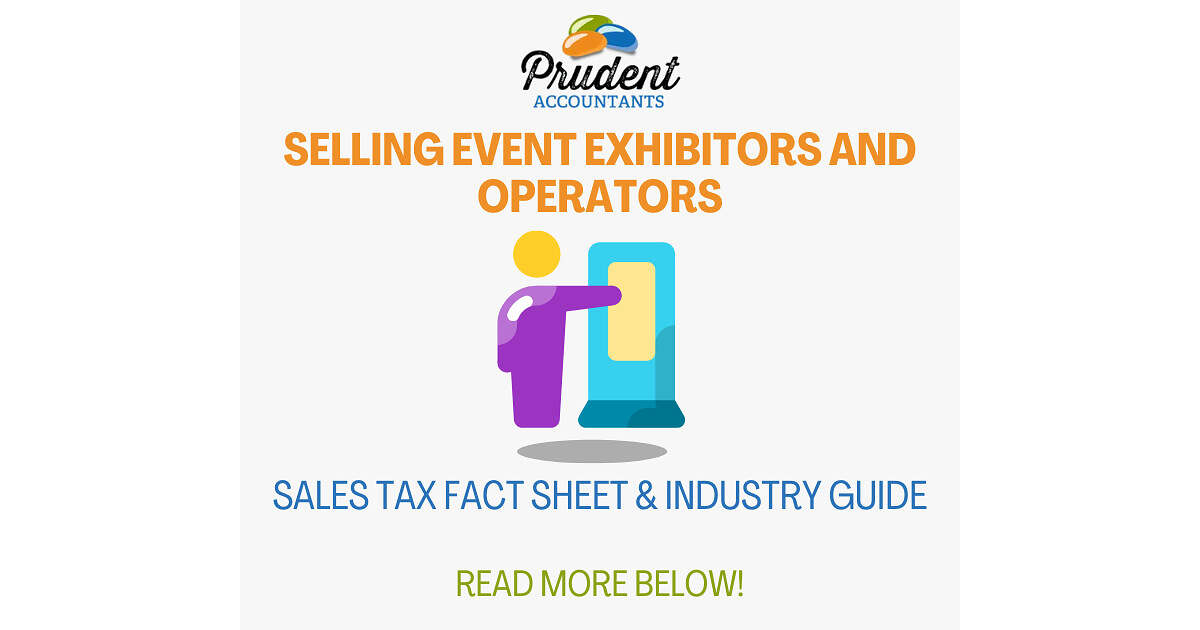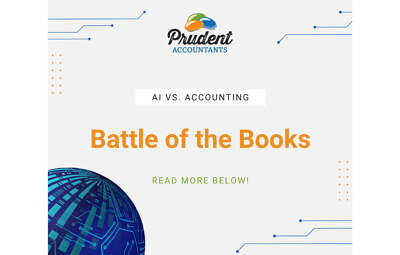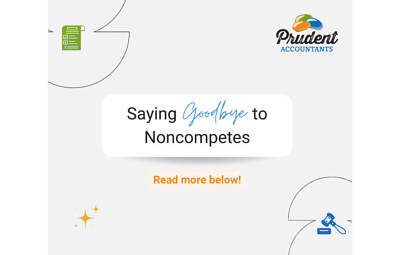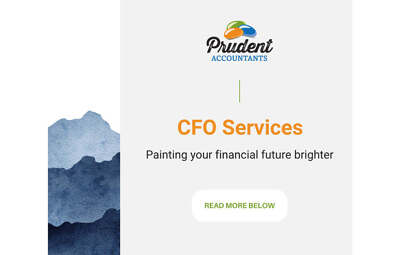Selling Event Exhibitors and Operators-Sales Tax Fact Sheet & Industry Guide

Any business, individual, promoter, operator, or fair board making taxable sales at a flea market, collector’s show, craft
show, antique show, county fair, trade show, or similar event must be registered to collect the Minnesota general sales
tax and any applicable local taxes before the event begins.
Certain individual sellers at a flea market or similar event are not required to register to collect sales tax if they qualify
for the isolated and occasional sales exemption. To qualify, all of the following conditions must be met:
- The seller participates in only one event per calendar year that lasts no more than three days
- The seller makes sales of $500 or less during the calendar year
- The seller provides a written statement to that effect, and includes the seller’s name, address, and telephone number
This isolated and occasional sales provision applies to individuals only, it does not apply to businesses.
Sales Tax Registration
If you are not registered for sales and use tax, you must contact the Minnesota Department of Revenue and register to
collect and report taxes. Call Business Registration at 651-282-5225 or 1-800-657-3605 (toll-free).
Operators of Selling Events
Minnesota law requires that before an operator of a craft show, art fair, flea market, or similar selling event can rent
space to a seller at the event, the operator must have either proof that the seller is registered to collect Minnesota sales
tax, a written statement from the seller that no taxable items are being sold, or a written statement from the seller indicating that they qualify for the isolated and occasional sales exemption mentioned above.
Sellers are required to give the operator a completed Form ST19, Operator Certificate of Compliance, or other similar
written statement for this purpose. You can get Form ST19 on our website. Go to www.revenue.state.mn.us and type
ST19 into the Search box.
Operators should keep the forms for at least three and a half years. Operators who do not have Form ST19 or a similar
written statement from sellers, can be fined a penalty of $100 for each seller that is not in compliance for each day of the
selling event.
Sales
Sales of arts, crafts, antiques, collector items, and equipment are generally subject to the general state sales tax and any
applicable local taxes.
Sellers should separately state the sales tax whenever possible. If the tax is included in the selling price, the item must be
marked “tax included,” or a sign posted indicating that tax is included in all prices.
Below are guidelines for items commonly sold at fairs and other selling events.
Admissions
Entertainment Events
Admission tickets to county fairs and other entertainment or sporting events such as grandstand shows, horse shows, and
auto races are taxable.
Selling Events
Admission tickets to flea markets, antique shows, and similar selling events are not taxable.
Entry Fees
Entry fees to participate in a competitive event are not taxable unless they are for a normally taxable admission or use of an
amusement device. For example, entry fees to enter a quilt into a sewing competition are not taxable because no admission
or amusement is involved. However, entry fees to play in a dart tournament are taxable because the normal fee for playing
darts is taxable.
Amusements
Charges for rides, sideshows, or exhibitions are taxable. This includes all carnival rides and games, as well as bungee
jumping, video games, games of chance or skill, mechanical handwriting analysis, virtual reality games, and other entertainment.
Clothing
Clothing meant to be worn on the human body for general use is not taxable, but some accessories are taxable. Baby clothing (including receiving blankets used as clothing) is not taxable. For more information, see the Clothing Fact Sheet.
Collectors
Sales of collector items such as model trains, guns, coins, comic books, stamps, and sports memorabilia are subject to sales
tax when sold at a collectors’ show, flea market, or any similar gathering of sellers.
Lodging
Charges for lodging accommodations, including campsites, mobile homes, or other lodging facilities are taxable.
Parking
Charges for parking vehicles are taxable (except at parking meters).
Rentals
Rentals of equipment such as display booths, coolers, and generators are taxable. Rentals of booth space are not taxable.
Utilities
Charges for electricity, gas, water, or other utilities to operators of shows or concessions are taxable.
Food and Drinks
Prepared food, as well as candy and soft drinks are taxable. Food and drinks, including bakery goods, are taxable when
sold with eating utensils provided by the seller. Eating utensils include plates, knives, forks, spoons, glasses, cups, napkins, or straws.
For more information, see the following fact sheets:
- Candy
- Dietary Supplements
- Food and Food Ingredients
- Prepared Food
- Soft Drinks and Other Beverages
Alcoholic Beverages
Sales of intoxicating liquor are subject to the Minnesota general rate sales tax and a 2.5% liquor gross receipts tax. Nontaxable alcoholic beer is subject to the state general sales tax. For more information, see the Food and Bar Establishments Guide.
Examples of Food Sales at a Food or Other Event
- A baker makes and sells cinnamon rolls served on a plate. Since the plate is considered an eating utensil, the
cinnamon rolls are taxable. - A fair booth makes and sells jars of spaghetti sauce. The sauce is not taxable because the customer generally
heats it after the sale. - A shop at a flea market makes and sells jam. The jam is taxable because the seller prepared the jam by combining two or more food ingredients, and the customer does not usually cook or heat it after the sale.
- A booth at a carnival sells whole fresh fruit. No eating utensils are provided. The fruit is not taxable.
- A vendor at a fair prepares and sells flavored nuts. The nuts are taxable because they are prepared by the seller
and the customer does not usually cook or heat them after the sale. - A vendor at a trade show sells spices made by someone else to use in cooking. The vendor uses the spices in
demonstrations and passes out free samples of spiced food. Eating utensils are used to pass out the samples. The
spices are not taxable because they are not prepared by the seller. The eating utensils used during the demonstration do not cause the spices to be taxable. - A concessionaire sells pickles. The concessionaire uses a wooden skewer to retrieve the pickle from the container and hands the pickle to the customer on the skewer, which the customer keeps. The skewer is considered
to be an eating utensil, so the pickle is taxable.
Advertising
Sales of advertising products such as programs, brochures, signs and rentals of portable signs are taxable. Leases or rentals of billboard advertising are not taxable. Advertising services (including concept and design) are not taxable.
Prizes
Prizes awarded in games of skill or chance conducted at events such as carnivals, festivals, and fairs lasting less than six
days are exempt from sales or use tax. Give the seller a completed Form ST3, Certificate of Exemption, to claim exemption.
Purchases of prizes are taxable for use at amusement parks, arcades, the State Fair, or other events that last six days or
more. Also, items are taxable if they are awarded as prizes in connection with lawful gambling or the state lottery.
Use Tax
Use tax applies to items or services you use that you purchased without paying sales tax. Use tax is similar to the sales
tax and the rates are identical. Use tax is based on your cost of taxable purchases. Common examples of when use tax is
due:
- You buy items for resale for your business, then remove some of the items from inventory for business or personal use.
- You buy a computer for use in your business from a mail order company or over the internet and the seller does
not charge tax.
Report state and local tax when you report your sales tax. For more information, see the Use Tax for Businesses Fact
Sheet.
Out-of-State Vendors
Out-of-state businesses must collect Minnesota tax on all taxable sales made while in Minnesota. If you make sales to
Minnesota residents after you leave Minnesota, or take orders for future direct mailings, these sales may be subject to
Minnesota Sales Tax.
If you come into Minnesota for a selling event, you are subject to income tax if you meet the minimum filing requirements. For more information, call 651-296-3781 or 1-800-652-9094 (toll-free).
Local Sales and Use Taxes
If you are located in or make sales into an area with a local tax, you may owe local sales or use tax. For more information, see the Local Sales and Use Tax Guide.
Special Local Taxes
In addition to the general local sales and use tax, some cities impose additional sales and use taxes on food, liquor, lodging, and entertainment, which the Department of Revenue administers. For more information, see the following fact
sheets:
- Minneapolis Special Local Taxes
- Special Local Taxes
For more information, see the Selling Event Exhibitors and Operators-Sales Tax Fact Sheet & Industry Guide.







